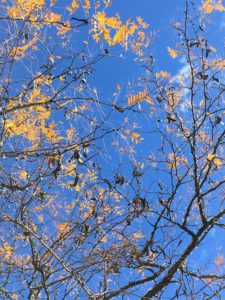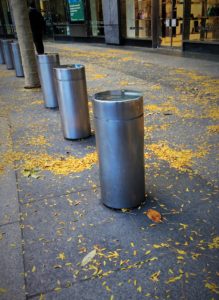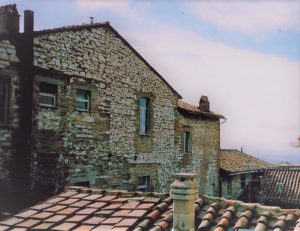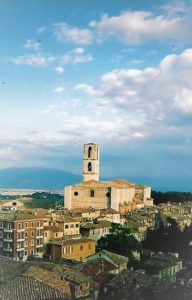For weeks, the temperature had been above average. Finally, cold wind swept through the area in the last few days. Trees, having fought hard to retain their summery green, reluctantly put on their colorful autumn coats.
Locusts, one of the most popular type of street trees in New York, turned bright yellow. Shimmering under the sun, their dainty leaves were the last holdouts. Eventually the sky became more and more visible among the branches. Little yellow dots and strings scattered on the sidewalks, forced into a roundelay by the winter wind from time to time.
Visually appealing, these leaves quickly became hazardous to pedestrians when the rain started falling. And, it became a thankless and endless job for supers to remove them from the sidewalk. A cat and mouse game.

When I first came to the States, I envied people with great big lawn and watched them gathering fallen leaves with curious eyes. Eventually, I had my own big lawn to mow and leaves to rake.
Standing in my front yard, there was a century-old silver maple, pleasing yet majestic. Its branches and leaves canvassed a large portion of the yard. In early October, the leaves would gradually turn into all shades of yellow, orange and red. Looking out of my living room window as the sun was setting, the top of the tree glowed triumphantly.
The first year, only a few weeks after moving into the house, there was already a thick layer of dead leaves on the ground. I bought two new rakes and asked a friend to help me with leaf-removal. Shortly after we started, a kind neighbor walked over telling us that, with the size of the yard and ALL the trees surrounding our block, I really needed to get a leaf blower—not the little hand-held ones. My idyllic dream of raking leaves under warm autumn sun died instantly. Instead, it was a real task of gathering and bagging piles of dead leaves, then dragging them out for trash pickup every fall. I couldn’t be happier when, eventually, the city started sweeping/vacuuming collected leaves on curbside.
However, I did have some fun memories with autumn leaves. Mom spent a few autumns with me. She didn’t know how to handle the blower. Even piling the leaves was too heavy a task for her. But she enjoyed bagging leaves. She wouldn’t even mind standing in the middle with the leaves piling up knee-high around her. We had many laughter-filled afternoons getting our hands dirty. It was a blessing that I could spend those lovely days with mom.


